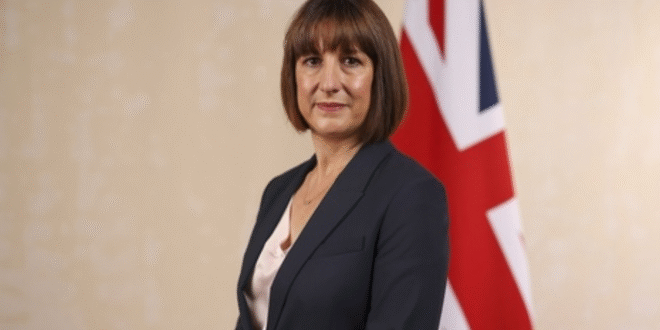As the Chancellor of the Exchequer, Rachel Reeves is currently at the Centre of an intense national economic debate, having set the stage for a critical fiscal event in late 2025.
Facing a challenging combination of global instability, stubborn domestic inflation, and bleak productivity forecasts, Reeves has been forced to prepare the British public and the financial markets for a budget that promises to be more about tough choices than popular relief.
Her recent “scene setter” speech delivered a clear message: the economic path inherited by the government requires all citizens to “contribute to that effort.”
This candid approach is designed to manage expectations ahead of what is widely anticipated to be a tax-raising statement aimed at shoring up the nation’s public finances and funding vital public services.
The upcoming statement will define her tenure and the economic direction of the country for the coming years, all while balancing the delicate priorities of fiscal discipline, investment, and protecting the most vulnerable households.
Related Article: Train Derailment Near Shap, Cumbria: Avanti West Coast Disruption
The Road to the UK Budget 2025
The date for the next major fiscal statement, the UK Budget 2025, has been confirmed for November 26.
This highly anticipated announcement follows an unusual pre-budget speech by Reeves on November 4th, which aimed to frame the difficult economic circumstances necessitating a potentially unpopular set of measures.
Her address painted a picture of an economy weakened by years of austerity, reckless borrowing, and external pressures.
The Chancellor stressed that she must “face the world as it is, not the world that I want it to be,” suggesting that maintaining election-era pledges may prove impossible given the scale of the financial challenges.
The government’s priorities for the autumn budget 2025 remain clear: to protect the NHS, reduce the national debt, and improve the cost of living, yet the methods for achieving these goals now appear to involve a greater contribution from the public.
Speculation around when the budget 2025 intensified in the weeks leading up to the speech, with political commentators and financial analysts alike bracing for the inevitable policy changes.
Related Article: Boeing 787-8 Dreamliner Makes Emergency Landing in Washington
An “Iron Clad” Commitment and the FTSE 100 Reaction
In her efforts to reassure markets, Rachel Reeves repeatedly emphasized her “iron clad” commitment to her established fiscal rules—a signal that she will avoid a debt splurge and maintain strict control over the public finances.
This commitment to fiscal discipline was well-received by bond investors, leading to a fall in UK borrowing costs (gilt yields).
However, the reaction from the equity market was less optimistic.
Following her speech, the FTSE 100 index—which tracks the UK’s 100 largest listed companies—fell sharply, extending earlier losses. This market move, which was mirrored by drops in the broader FTSE and the FTSE100, indicated investor concern.
The decline suggested that the market views the prospect of higher personal taxes, which Rachel Reeves’ speech today hinted at, as a negative drag on consumer spending and, consequently, on business profits and economic growth.
While the fall was also part of a wider global sell-off, the Chancellor’s comments compounded the worries, highlighting the delicate balance she must strike between fiscal prudence and fostering a business-friendly environment.
Related Article: Julian Brown, inventor of Plastoline, missing
The Looming Income Tax Question
One of the most intense areas of speculation in the Rachel Reeves news coverage relates to her manifesto promise not to raise income tax, National Insurance, or VAT for “working people.”
When pressed on this commitment, Reeves declined to repeat the pledge, stating simply that “we will all have to contribute.”
This position has fuelled reports that the government is considering targeting higher earners to raise the necessary revenue.
Measures reportedly under consideration could potentially involve raising taxes for individuals earning above a certain threshold, such as £46,000, which the government may define as the top one-third of earners.
The Chancellor has consistently argued that “those with the broadest shoulders should pay their fair share of tax,” a policy stance that aligns with Labour’s core values but risks alienating a significant portion of the middle-income demographic.
The eventual decision on income tax will be the most politically sensitive element of the entire uk budget 2025 statement.
Economic Headwinds and the OBR Forecast
The challenging fiscal picture that Reeves faces is largely driven by a bleak assessment of the UK’s productive capacity.
The Office for Budget Responsibility (OBR), the Treasury’s independent forecaster, is expected to significantly downgrade its outlook for long-term productivity growth.
This downgrade means the government can anticipate billions of pounds less in tax receipts over the coming years, creating a substantial hole—estimated by some at up to £20 billion—in the public finances that needs to be plugged.
Furthermore, the cost of servicing the UK’s substantial national debt has soared, now absorbing nearly £1 in every £10 of government spending.
These domestic challenges are compounded by a difficult global landscape, including tariffs dragging on confidence and volatile supply chains keeping inflation stubbornly high.
These factors underscore the Chancellor’s argument that “necessary choices” are required, which is why her Rachel reeves speech focused heavily on preparing the electorate for a period of shared economic responsibility.
The Chancellor is also likely to comment on the outlook for the economy in the context of research from bodies such as the Resolution Foundation, which provides deep analysis of living standards, tax, and spending, further emphasizing the need for corrective action.
In conclusion, Rachel Reeves is steering the UK economy toward a pivotal moment with the UK Budget 2025.
Her pre-budget messaging confirms that the government is in a difficult fiscal position, necessitating a move away from previous tax pledges to secure the public finances.
While her “iron clad” commitment to debt reduction has calmed bond markets, the prospect of tax rises has caused concern in the FTSE and among businesses.
The decisions she announces on November 26th will be a tightrope walk—seeking to fund vital public services and stimulate growth without undermining her party’s promise to protect ordinary working people.
The outcome of the autumn budget 2025 will determine the short-to-medium-term trajectory of the UK economy and the political fortunes of the current government.




